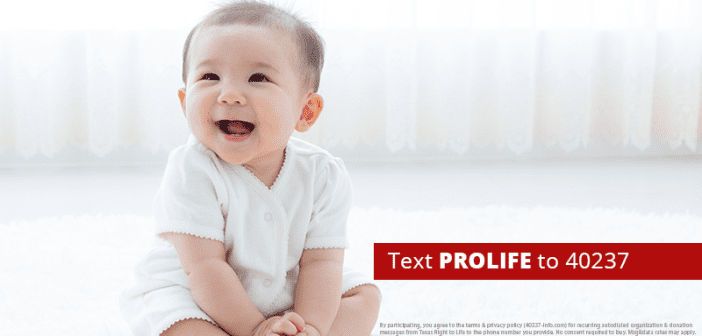A new study from the University of Virginia (UVA) demonstrates what parents have already figured out: babies are born with a unique personality. The research, published in Frontiers in Psychiatry, further demonstrates the sophisticated development of even the youngest babies, showing how unique each human Life is from the very beginning.
Entitled, “Variability in Infants’ Functional Brain Network Connectivity Is Associated With Differences in Affect and Behavior, the study looked at brain network connectivity and the effect of those brain networks on babies’ behavior and temperament. The study followed 75 babies born in 2019 who were brought in for continued observation in the years after birth. Researchers found a relationship between brain connectivity and certain baby traits and behaviors. By analyzing the brain activity of two-week-old newborns, the researchers found that this relationship was unique to each child.
Tobias Grossmann, who co-authored the study and is a professor of psychology and director of UVA’s Babylab, told UVAToday, “To our knowledge, this is the first study to demonstrate that connectivity for this specific brain network develops early in human infancy and plays a role in accounting for individual differences in emerging self-regulation and control skills among infants.”
Grossmann explained, “Our main findings show that soon after birth, greater connectivity between frontal and parietal brain regions is linked to improved behavioral regulation in human infants.” The traits analyzed in the study include behaviors and tendencies like soothability, smiling and laughter, sadness, fear and vocal reactivity.
Grossmann and his team looked at the brain activity of newborns, but the brain development also occurred before birth. Other research has demonstrated how complex prenatal development is and that babies have many abilities while still in the womb. Babies in the womb, even in the first trimester, can sense touch. Developing babies listen to their mother’s voice and prepare for life after birth. While still in the womb, babies begin to develop their sense of taste and mimic breathing.
Alluding to this body of research, Grossmann said the new research “might be surprising for the general public, but maybe not for someone who studies the brain and studies biology in general or human biology, because a lot of [development]has already happened in the womb.” The politics of abortion, the legal killing of preborn babies, has obscured the obvious biological fact that babies in the womb are developing human beings. A basic understanding of science would mean that Grossmann’s and his team’s findings would not seem surprising. In order for a viable newborn baby to emerge from the womb with the capacity to recognize voices, engage in social behavior, and ensure his or her needs are met, significant skills have to develop while the child is still in the womb.
Abortion activists continue to dehumanize the preborn. They try to make arbitrary categories to exclude preborn babies from the rest of us, but the undeniable truth is that the newborn baby held in a mother’s arms is the same baby who was just hours or days before in her mother’s womb. The differences between a preborn baby and a child who has been born—and an adult, for that matter—are only time and development.
Grossmann noted this continuity of development in the human person and expressed his hope for continued research in the field of brain connectivity. Grossmann told UVAToday, “Establishing this link [between brain connectivity and behavior]basically lays the groundwork for us to do systematic work, especially longitudinal work, where we follow those infants and families throughout the course of at least the first two years of life.” He clarified that the connectivity found even in young babies that seems to so strongly influence their behavior and temperament does not mean that people are predetermined by their brain development. Grossmann said, “There is a lot of plasticity [in the brain,]especially in those early years.”
There is so much more that we do not yet know about prenatal development and the way that babies learn inside the womb and out. What is clear from the scientific evidence is that a unique person’s life begins at conception and continues to unfold in ways we are only beginning to understand.


